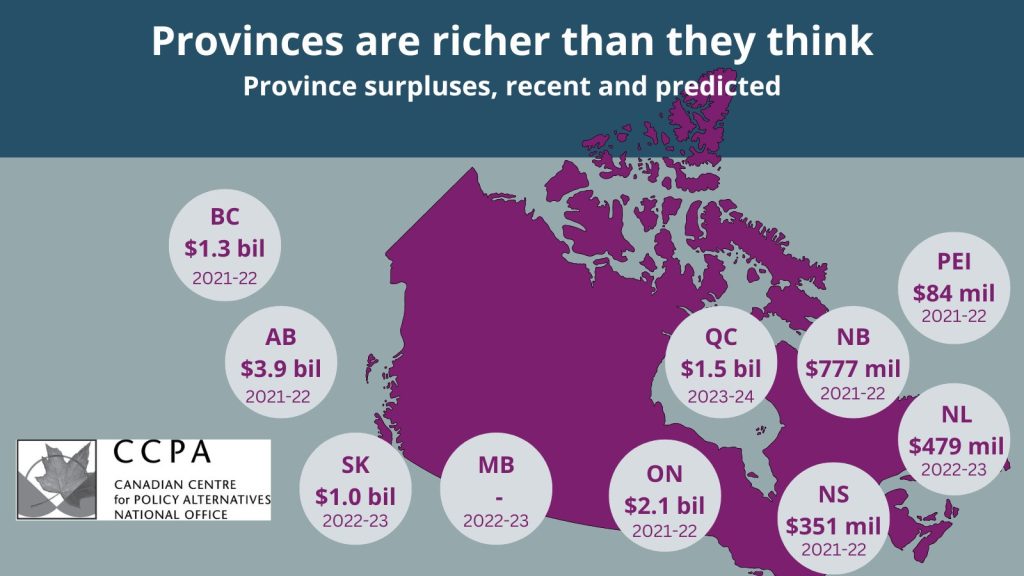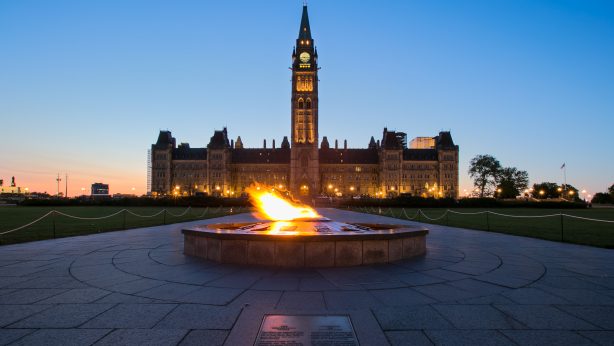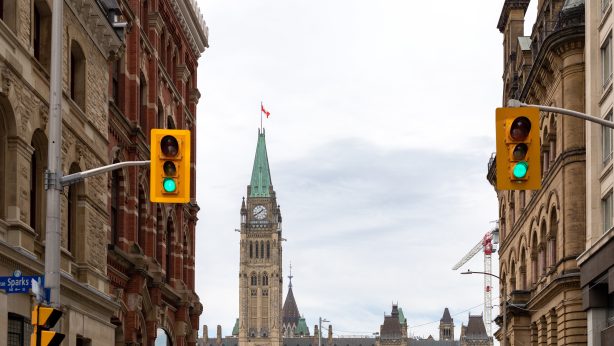No time for sabotage: Ending the federal-provincial impasse on health care spending
With health care talks failing between the federal government and provinces and territories in Vancouver last week, Prime Minister Justin Trudeau says he is considering tailor-made funding agreements with the provinces.
According to Intergovernmental Affairs Minister Dominic LeBlanc, who represents the New Brunswick riding of Beauséjour, the feds would happily make a deal with New Brunswick, as reported in the Telegraph-Journal on November 14.
LeBlanc met with Trudeau and New Brunswick Premier Blaine Higgs last week while Trudeau was visiting the province for a Remembrance Day ceremony.
According to LeBlanc, Higgs is not one of the Conservative premiers pushing back against conditional funding, including requirements that the provinces implement better data tracking systems and expand the use of common health indicators.
“If Premier Higgs said to us that he wanted to strike a bilateral agreement, I think we would be quite pleased to go to Fredericton quickly,” said LeBlanc.
Higgs, however, does not seem quite so keen to break ranks with the other premiers, telling reporters last week that he still hopes for a deal with all the provinces.
New Brunswick has a very recent history of going its own way on health care deals with the feds.
In 2016, then Liberal Premier Brian Gallant signed a deal with the Trudeau government, getting an additional $230 million in funding for home care and mental health care services. New Brunswick was also given the option of adopting the terms of a more generous bilateral agreement with another province if one was signed.
“No progress had been achieved,” Premiers prematurely state on a health care deal
Last week in Vancouver, talks between the federal and provincial/territorial health ministers broke down when Canada’s premiers issued a news release declaring “no progress had been achieved” as their health ministers were still meeting with Federal Health Minister Jean-Yves Duclos.
The Premiers’ press release at best served as a distraction to what was actually on the agenda of the health ministers’ meeting. For months, the ministers were discussing a health human resources action plan, but the meeting ended without the parties endorsing any movement on the plan.
The provinces want the federal government to increase their share of health care funding to 35%. This year, Ottawa is providing about $45 billion to the provinces through the Canada Health Transfer. The provinces want another $28 billion a year. Meanwhile, the federal government said it would increase the annual Canada Health Transfer to the provinces if the provinces implemented better data collection systems that showed results, such as the waiting times for surgeries or mental health services, or the number of people being matched with a family doctor.
As the health ministers were meeting in Vancouver, Trudeau was telling New Brunswick reporters that he is worried that the provinces may not spend an increased federal health transfer on health care but on other priorities. He also chided the New Brunswick government for giving “tax breaks to the wealthiest.”
Beyond giving the largest tax breaks to New Brunswick’s top income earners, the province’s surplus is expected to balloon to $774.4 million. The NB Health Coalition, the NB Coalition for Persons with Disabilities, and unions in the provinces, including the CUPE New Brunswick’s long-term care workers, have called out the province for not spending the surplus on health care and health care workers.
The Canadian Policy for Alternatives’ new report, “Flush with Cash: The Provinces are richer than they think,” points out that most provinces in Canada are running surpluses in the multi-million dollar ranges.
David Macdonald writes in the conclusion of the report, “The pandemic revealed plenty of problems with provincial health care systems, from a shortage of nurses to atrocious long-term care to lack of surge capacity to deal with major crises. Many of these problems were a result of chronic underfunding, which has been exposed by COVID-19 over the past two years. While government underfunding has been driven by ideology, there is no financial excuse for the provinces to ignore these chronic issues any longer.”

Winter is here
“Winter is coming. Without clarity and candour on the part of leaders, and without some low-burden and urgent measures to mitigate the spread of multiple viruses in the near future, Canadians face the real prospect of more disruptions to their health care services, and long-term damage from a continued exodus of demoralized health care workers,” wrote Fahad Razak, Katharine Smart, Alika Lafontaine, Arthur Slutsky and David Naylor for the Globe and Mail back on August 16, 2022.
Three months later and with talks between the health ministers collapsing, the Canadian Federation of Nurses and Canadian Nurses Association said they were appalled by the lack of “meaningful progress in addressing Canada’s health care crisis.” Their joint statement noted: “Nurses from across Canada are burnt out and under severe stress while facing unprecedented pressures that have pushed them past the breaking point.”
On November 12, President of the Canadian Medical Association Dr. Alika Lafontaine tweeted, “Winter is here.”
“Winter is coming. Without clarity and candour on the part of leaders, and without some low-burden and urgent measures to mitigate the spread of multiple viruses in the near future, Canadians face the real prospect of more disruptions…”
— Dr. Alika Lafontaine MD (@AlikaMD) November 14, 2022
Winter is here.https://t.co/GabPQcWSFc
Stopping the bleeding of health care workers is never more urgent as sick children are overwhelming hospitals across the country.
As Canada’s nurses told the ministers last week, “Political differences must be put aside to prioritize patient and worker needs.”
Tracy Glynn is the National Director of Projects and Operations for the Canadian Health Coalition


